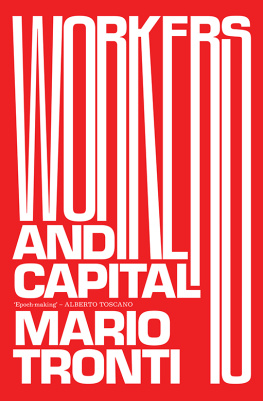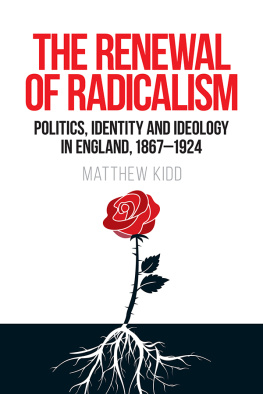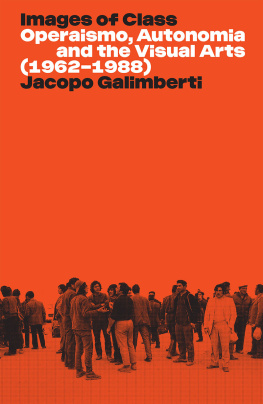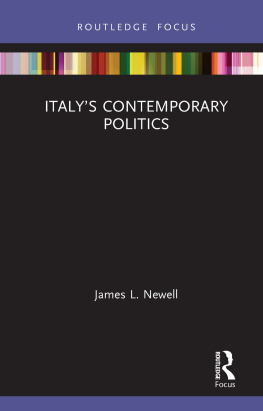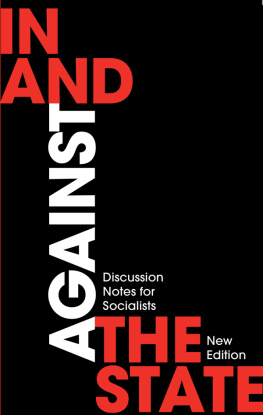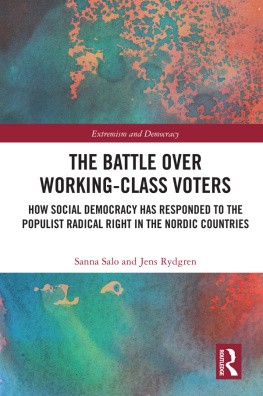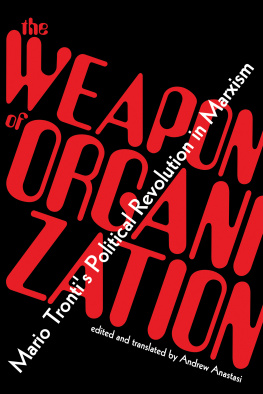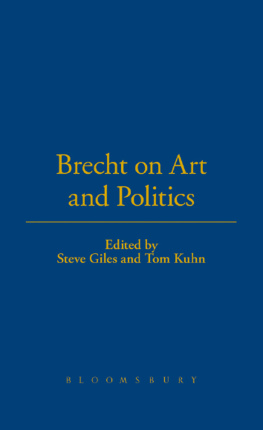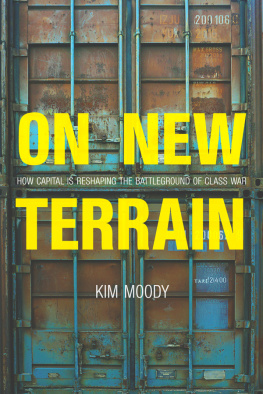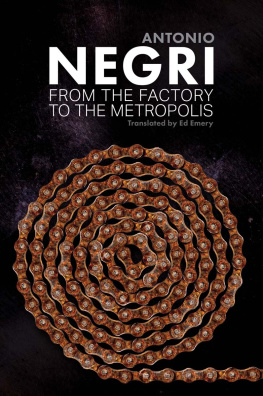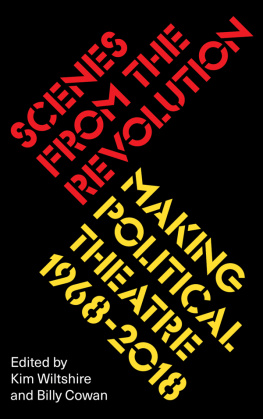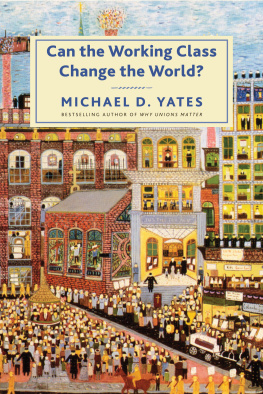
Workers and Capital
Workers and Capital
Mario Tronti Translated by David Broder

This book has been translated thanks to a translation grant awarded by the Italian Ministry of Foreign Affairs and International Cooperation.
Questo libro stato tradotto grazie ad un contributo alla traduzione assegnato dal Ministero degli Affari Esteri e della Cooperazione Internazionale italiano.
The translation of this book has been funded by SEPS
SEGRETARIO EUROPEO PER LE PUBBLICAZIONI SCIENTIFICHE

Via Val dAposa 7 40123 Bologna Italy
This English-language edition published by Verso 2019
Published in Italian as Operai e capitale by Einaudi in 1966 and 1971, republished by DeriveApprodi in 2006 and 2013
Translation David Broder 2019
All rights reserved
The moral rights of the author have been asserted
1 3 5 7 9 10 8 6 4 2
Verso
UK: 6 Meard Street, London W1F 0EG
US: 20 Jay Street, Suite 1010, Brooklyn, NY 11201
versobooks.com
Verso is the imprint of New Left Books
ISBN-13: 978-1-78873-040-2
ISBN-13: 978-1-78873-039-6 (HARDBACK)
ISBN-13: 978-1-78873-041-9 (UK EBK)
ISBN-13: 978-1-78873-042-6 (US EBK)
British Library Cataloguing in Publication Data
A catalogue record for this book is available from the British Library
Library of Congress Cataloging-in-Publication Data
A catalog record for this book is available from the Library of Congress
Typeset in Minion by Hewer Text UK Ltd, Edinburgh
Printed and bound by CPI Group (UK) Ltd, Croydon CR0 4YY
Contents
The publication of an English-language edition of Mario Trontis 1966 classic Operai e capitale has been long awaited. One or two complete chapters have appeared in the past, together with some fragments; more recently, other sections of the book have appeared online. Now, thanks to David Broders fine translation, a complete version of the books second edition of 1971 is available. English-language readers who had previously encountered Workers and Capital only in part, or else as refracted through second hand commentary, are finally in a position to judge for themselves the value of Trontis most famous text.
Initially published in 1966, Operai e capitale is the first book produced by the political tendency known as operaismo (literally workerism, although arguments continue as to whether that is a useful rendering of the word in English). Many such books followed over the next fifteen years, and some of these too would be best sellers. None, however, could match the shiver of recognition and excitement that Trontis volume evoked within a large part of Italys generation of 1968. At a time when the likes of Marcuse and Mao were as popular there as elsewhere in the West, Workers and Capital stood out amongst the local outpourings of revolutionary thought. In truth, for many Italian radical circles of the time, the book was treated as nothing less than a bible above all by the group Potere Operaio, which briefly brought together a significant proportion of the countrys workerists, in pursuit of what Brecht once called the simple thing / So difficult to achieve.
As with other political tendencies, operaismo did not emerge one morning fully formed and complete. Instead, its central precepts were developed over the course of the early 1960s, during which its advocates slowly differentiated themselves amongst a range of perspectives critical of the postwar practices of the mainstream left in Italy. United by a common belief that the leadership of the local Communist (PCI) and Socialist (PSI) parties did not understand the recent massive changes in working-class composition and politics, these various dissenters offered very different solutions to this conundrum. Amongst them, the workerists insisted that a Marxian purification of Marx was indispensable for understanding and organising class conflict. So far, so usual: what made the operaisti less typical (although not unique) was an equal insistence that this task could only be achieved through an encounter between Marxs critique of political economy and the realities of workplace power relations in contemporary Italy.
Tronti was born into a Roman working-class family in 1931. As secretary of the university PCI branch, he was one of the many party members who protested against the USSRs invasion of revolutionary Hungary. Not long afterwards, Tronti began to make a name for himself as a talented if unconventional writer on Marxs mature work, influenced in this by Galvano della Volpe. The latter was then unusual as a Communist intellectual who read Marx closely: Trontis early work went further, and turned Marx into a goad to be used against the Communist partys tutelary saint Antonio Gramsci. Criticising what he saw as the profoundly idealist outlook of the Gramsci championed by the Communist party, Tronti argued that If philosophy coincides with good sense, we must distrust philosophy. Unlike Gramsci, Tronti did not hail any revolutions against Capital ; rather, he sought to engage with Marx not in his own time, but in our own. Capital should be judged on the basis of the capitalism of today . And the capitalism of the early 1960s was one through which Italian society was subjected to massive change: in the first place, an unprecedented industrial development underpinned by internal migration to the countrys North, swelling in turn the population of cities like Milan and Turin. Faced with such changes, the countrys official labour movement seemed to Tronti and his closest associates to be ill-equipped to understand the processes in tow, let alone to formulate appropriate class strategies in response.
By the late 1950s, Tronti and his immediate associates had been drawn into the national network of young militants then being assembled by Raniero Panzieri. A dissident Socialist from an older generation, Panzieri shared the scepticism of Tronti and others as to the ability of the main left-wing parties to develop a class politics adequate to a rapidly changing Italy. Recalling their time working together around the iconic journal Quaderni Rossi (Red Notebooks), Tronti would later write that, for all the differences in their outlook, Panzieri deserved to be remembered as someone who had anticipated the 1960s, a decade that in Italy culminated not only in an imposing student movement, but also in a wave of mass workers struggles that challenged the unions and the parties of the mainstream left as much as it challenged capital itself.
Like Lukcss History and Class Consciousness, Workers and Capital is a collection of essays composed over a period of years. Most had previously appeared in a range of left-wing journals across the first half of the 1960s primarily Quaderni Rossi and Classe Operaia (Working Class), the review that Tronti and others began publishing in 1964. As a consequence, the evolution of many of the books key themes can be traced within and across its very pages. For that reason, reading the book by beginning with its introduction can be a little deceiving, given that A course of action was in fact the last section written for its first edition. While Tronti seems not to have revamped any of the individual components of his book, the manner in which his introduction frames the essays that follow cast the latter in a new light, as does his decision to select particular writings from Classe Operaia and treat them as part of one composite treatise. The texts that predate that journal grouped together in the books initial section as First hypotheses set the scene for what is to follow, arguing not only that working-class struggle has always objectively functioned as a dynamic moment of capitalist development, but drawing the conclusion that The bourgeois state machine today must today be broken within the capitalist factory. Still, it will take the opening sentences of the first essay of the books second section (Lenin in England also the editorial of Classe Operaia s first issue) for operaismo to be ushered into being through what has since been called Trontis Copernican revolution: At the level of socially-developed capital, capitalist development is subordinate to working-class struggles.
Next page
